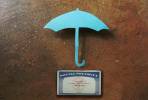Microsoft chief touches on tablets — but lightly
One year ago, Microsoft Corp. CEO Steve Ballmer took the stage at the tech industry's premier gadget show to showcase a Windows tablet computer to an audience that had yet to meet the iPad.
This year, with tablets marking the hottest items at the show and Windows lagging far behind Apple Inc.'s iPad, the stakes were higher. Microsoft's status as a technology oracle, which guaranteed its spot delivering the trade show's night-before keynote each year, is slipping.
On Wednesday evening, Ballmer spent more time talking about such existing products as the Xbox video game system and Windows Phone 7 smart phone software than he did tablets.
Beyond tablets, there are other major themes emerging at this year's International Consumer Electronics Show -- areas in which Microsoft has also failed to take the lead: smart phones and Internet television, two areas where Google Inc. and Apple, which aren't even attending the show, are getting the buzz.
Gadget makers including AsusTek Computer Inc. and Vizio Inc. have unveiled new tablet computers this week, and more were expected from the likes of Motorola Inc., Dell Inc. and Toshiba Corp. Many of the new tablets will use Android, Google Inc.'s operating software .
None of the tablets running Microsoft's Windows 7 have made waves with mainstream consumers, and tablets seemed to be almost an afterthought for Ballmer on Wednesday. The CEO left it to a worker to demonstrate a Windows 7 tablet from Taiwan's Asus that responds to touch and a special pen and that comes with a wireless keyboard.
While Windows 7 remains a question mark for its prospects as a tablet system, Microsoft officials began talking Wednesday about the next version, which is expected to be called Windows 8 and to launch in 2012.
"Whatever device you use, now or in the future, Windows will be there," Ballmer said.
And Internet-connected televisions or set-top boxes from competitors such as Google and Apple are a concern for Microsoft. It has had an Internet TV system for many years, but its customers have been telecommunications companies that repackaged the service to their own subscribers . Google and Apple have gone straight to consumers with Internet TV offerings under their own brands, while Microsoft has stuck with the Xbox as its main entertainment play.
Ballmer said Microsoft sold 8 million of its new Kinect sensor, an add-on for Xbox 360 that lets people control games and other features by moving around and speaking. That is 3 million more than expected in Kinect's first two months on the market.























